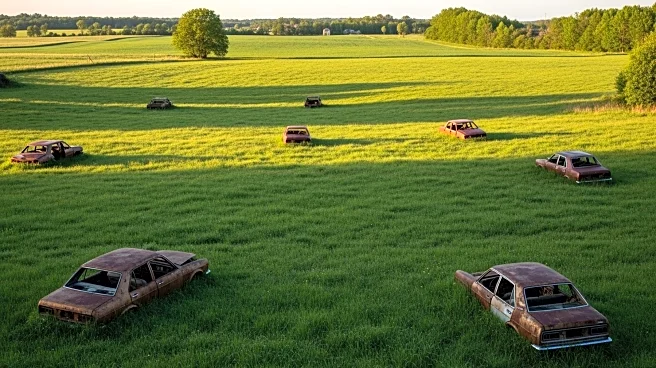What's Happening?
In a recent episode of NPR's 'The Best of Car Talk,' the hosts, known as Click and Clack, tackle a unique problem faced by Diane, a farm girl. Diane is attempting to plant her seasonal crops but is hindered
by numerous old junk cars scattered across her fields. These vehicles, left by various men on the farm, present a significant obstacle to her agricultural activities. The episode humorously explores whether Diane should attempt to negotiate with the men to remove the cars or simply plow over them. This episode is part of the ongoing series that revisits classic 'Car Talk' moments, blending automotive advice with humor.
Why It's Important?
The episode sheds light on a common rural issue where abandoned vehicles can disrupt agricultural productivity. This situation highlights the broader challenges faced by farmers in managing land use and dealing with non-agricultural waste. The humorous take by Click and Clack also underscores the cultural dynamics and gender roles in rural settings, where traditional male-dominated spaces intersect with modern agricultural practices. The show’s approach to addressing such issues through humor and practical advice makes it a valuable cultural commentary, resonating with audiences who face similar challenges.
What's Next?
Listeners of 'Car Talk' can expect more episodes that blend humor with practical advice on automotive and lifestyle issues. The show continues to engage audiences by revisiting classic episodes that address everyday problems with a comedic twist. For Diane, the resolution of her car dilemma may inspire similar actions among listeners facing comparable issues, potentially leading to community discussions on land management and waste disposal in rural areas.
Beyond the Headlines
The episode also touches on the broader implications of land use and environmental management in rural America. The presence of junk cars on farmland raises questions about environmental stewardship and the responsibilities of landowners in maintaining clean and productive agricultural spaces. This scenario may prompt discussions on policy measures to address rural waste management and support for farmers in maintaining their land.









